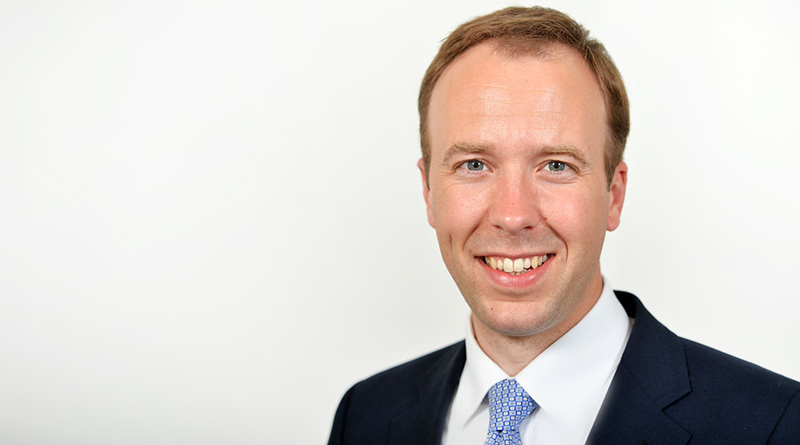Public Urged To Not Delay GP Visits This World Cancer Day
This World Cancer Day the Health and Social Care Secretary and NHS Clinical Director for Cancer are calling on the public to speak to their GP if they are worried about symptoms that could be cancer or concerned about factors that put them at higher risk.
NHS staff continue to work tirelessly to prioritise cancer surgery alongside COVID-19 treatment, and make sure cancer treatment can continue safely wherever possible. Cancer that is diagnosed at an early stage is more likely to be treated successfully and save lives. Late diagnosis can require more urgent or intensive treatment, and can often lead to worse outcomes for patients.
Between March and November 2020, nearly 1.5 million people were urgently referred by their GP with suspected cancer and over 203,000 people started treatment for cancer – 95% of whom started treatment within 31 days.
However, the latest NHS data shows fewer people are being referred for help for lung cancer and urological cancers, including prostate cancer, compared to other cancers, because they are not coming forward for help.
Health and Social Care Secretary Matt Hancock said:
“This World Cancer Day we should come together to commit that diagnosing and treating cancer is a top priority.
“If you notice any unusual symptoms which last more than a few weeks, however mild you think they might be, please come forward and discuss it with your GP. The sooner you speak to your GP, the sooner a diagnosis can be made, the sooner treatment can start, and the more lives we can save.
“I also urge anyone with cancer in the clinically extremely vulnerable category to ensure you get your COVID-19 jab when you get the call, so we can ensure all of the most vulnerable in society are protected from this devastating virus.”
The call to action from the Health Secretary comes as the NHS in England continues its ‘Help Us, Help You’ campaign. It aims to address some of the barriers that stop people from seeking medical advice and to encourage them to contact a health professional if they have concerns. From mid-February, a refreshed national campaign will turn its focus to lung cancer to encourage more people with specific warning signs to come forward for help, and not ignore them.
The main symptom of lung cancer is a cough, and if someone has had a cough for more than three weeks and it is not COVID-19, they must speak to their GP.
Latest data also shows there have also been fewer referrals for urological cancers, which includes prostate cancer. Health leaders are urging anyone with risk factors of prostate cancer to speak to their GP about any concerns – this includes men over 50, black men, and those with a history of prostate cancer in their family.
NHS Clinical Director for cancer, Professor Peter Johnson, said:
“The NHS has had a year like no other and – while COVID has put the health service under huge pressure – doctors, nurses and specialist clinicians have still carried out nearly 1.5 million cancer checks with more than 200,000 people starting treatment.
“Catching cancer early saves lives which is why we are using this World Cancer Day to urge anyone with a worrying symptom to help us help you by getting it checked out and come forward for your routine screenings when offered an appointment.”
Despite recent pressures on the NHS, cancer care has recovered back to usual levels in most areas, including acute leukaemia, breast cancer, children’s cancer and gynaecological cancer. Cancer treatments such as radiotherapy, chemotherapy and surgery are still taking place. Local NHS services are maximising independent sector use to manage any surges in COVID-19 cases and urgent cancer surgery patients are the first priority for accessing additional independent sector services where required.
The NHS is doing everything it can to ensure that cancer care can continue to be delivered safely. If people have an appointment for treatment or a test – including a screening test – they should feel safe go to their local NHS services as planned, unless told otherwise.
Karen Stalbow, Head of Policy at Prostate Cancer UK, said:
“Detecting prostate cancer earlier can help to saves lives, but most men with early prostate cancer don’t have any symptoms. That’s why it’s vital that men are aware of their risk. Andrew’s story is an important reminder of why men at risk of the disease shouldn’t wait to see changes before they act.
“If you’re over 50, black and over 45, or have a family history of prostate cancer, you’re at increased risk of the disease and should speak to your GP, who can guide you through the pros and cons of a PSA blood test. Anyone with concerns about prostate cancer can also call Prostate Cancer UK’s Specialist Nurses on 0800 074 8383.”
People with cancer are being protected with vaccinations as the NHS works to offer everyone in the top four priority groups identified by the JCVI – those aged 70 and above, frontline health and social care workers, the clinically extremely vulnerable including some cancer patients, care home residents and staff – by mid-February, with over 10 million people vaccinated so far.
The NHS has put a range of measures in place to keep patients safe, including cleaning, disinfecting and having social distancing in waiting areas in hospitals and GP surgeries.
COVID-secure cancer hubs have been launched again and ‘COVID-friendly’ NHS cancer treatments are being extended in a £160 million initiative, which will fund drugs that reduce damage to patients’ immune systems, meaning fewer hospital visits.
The government has ensured over £1 billion is available to the NHS to ensure the continued use of the independent sector in cancer treatment, on top of its record cash boost to the NHS budget of £39 billion a year by 2023/24.





